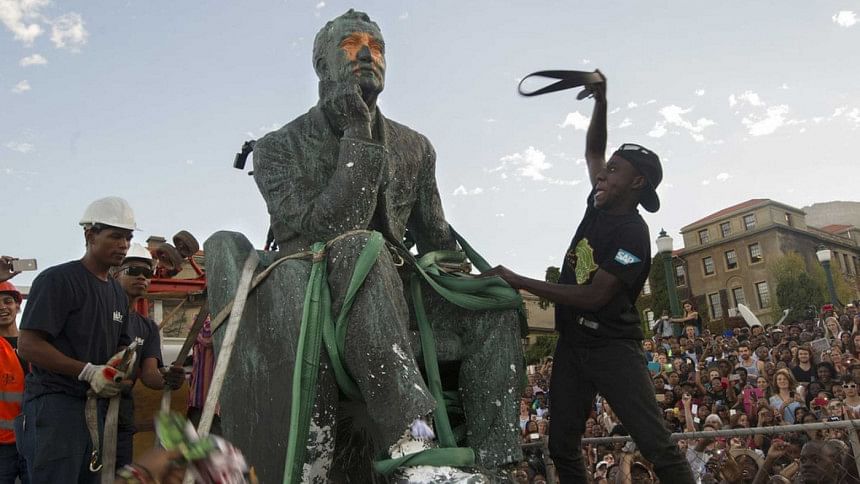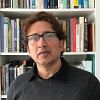The delicate work of decolonising knowledge

In recent years, the idea of "decolonising knowledge" (DK)—that knowledge creation must be liberated from West-centric and racialised views of the world—has become a bottom-up intellectual movement in Western academia. In fact, it's time for DK 2.0 now, inspired by the 2020 social justice movements in the wake of George Floyd's murder. Whether they agree with its basic premise or not, educators—particularly in social sciences and humanities—find themselves having to deal with DK in their classroom as both a disciplinary challenge and a political quandary.
For teachers sympathetic to the idea of DK, the key question is: How do you teach a curriculum that is freed from the discriminatory thought that the West and the old white patriarchy are the source and driver of what we can know of the world? They argue that a balanced curriculum is inclusive of different voices, cultures, and histories. In other words, how to bring about knowledge justice?
The decades of 1980s and 1990s were the heyday of DK 1.0, as educators sought to contest the entrenched influence of Western thought and colonialism on knowledge creation and histories of the world. Edward Said's "Orientalism" (1978) played a maverick role in questioning the methodologies of many Western academic traditions. He argued that the West had essentially produced—through academic scholarship, literature, painting, and travelogues—an inferior image of the Orient, the colonial occupation of which was a historical necessity or inevitability. That image made it normal to think that colonial powers were on a "civilising mission" in occupied territories. It was the "white man's burden" to civilise the savage natives. Even Karl Marx said, "They cannot represent themselves; they must be represented."
Today, the DK 2.0 advocates want to undo the cognitive damage wrought by colonialism and, more broadly, West-centric ideals that historically formed the basis of modern education systems across the world in the 19th and 20th centuries. Many educators face the dilemma of how to revise the grand old history of Western civilisation, one in which the histories of slavery, colonial extractive economy, and the marginalisation of women, non-western people and the underclass either remain absent or are mispresented. They want to bring in the voices of other people with the belief that such inclusivity would make students aware of the urgency of knowledge justice. The goal has not been the reactionary abandonment of Western ideals, but the creation of an equitable foundation of knowledge.
The idea of Western civilisation was itself a powerful ideological tool that was exploited to create a hierarchical view of the world and its different ethnic groups. A reporter once asked Mahatma Gandhi what he thought of Western civilisation. He replied, "I think it would be a good idea." But, as critical educators would argue today, making a case that Western civilisation is a fiction is hardly enough to decolonise knowledge. Without pedagogical institutions that facilitate research, critical thinking, and knowledge creation, academic pursuits not only remain fragmented, but perpetuate the meta-narratives of the West's civilising missions. DK proponents advocate that students in the 21st century must have a fuller, deeper, and wider understanding of the world and its peoples, cultures, societies, politics, and economies. Most of all, they need to understand the false claim of pure civilisations by looking at how cultures encounter each other and produce fusion of all kinds.
Let me explain. This semester, I am teaching a large class on architectural history, covering the "modern" period between 1750 and 2000. The course begins with an exploration of the Industrial Revolution, colonialism, European Enlightenment, American Revolution, and Adam Smith's political economy—all as contexts for understanding "modernity," the battle of ideas, and the rise of the industrial city.
To understand the industrial city and its urban challenges, we look at, among other cities, London, Manchester (nicknamed "cottonopolis" because of all its cotton mills), and Liverpool. Standard histories would discuss the rapid rise of cities like Manchester and Liverpool because of the factories and the workers who flocked to them in search of work. Unlike London, Manchester and Liverpool became urbanised without much prior urban footprints, such as boulevards, public health infrastructures, parks, churches, palaces, or cultural institutions.
Liverpool is a case in point to make sense of the urgency of decolonising knowledge. By the 1890s, Liverpool had become the second-largest port in England, after London. Important commodities like cotton, tea, rice, tobacco, sugar, and grain passed through this port city. It built the world's first fireproof warehouse and hydraulic warehouse hoist system. All this is standard history: how maritime trading created a port city.
But what often remains undiscussed is Liverpool's deep complicity in transatlantic slave trade. In fact, by the middle of the 18th century, this city became known as the "European capital of slave trade." Liverpool's infamous slave ship, the Brookes, became the symbol of the brutality and racial violence that made slavery a lucrative international business. In 1788, as part of their antislavery social campaign, the Quakers of Portsmouth published the plan of the Brookes, showing how it was designed to maximise the size of its human cargo.
Europe began to grasp the evils of the mass enslavement of abducted Africans, and the hellish conditions they had to endure while laying shackled in the hull of the ship during the entire voyage. Over 25 years, the Brookes made 10 Atlantic crossings, delivering 5,163 captured Africans to slave markets in the New World. Over 10 percent of its prisoners died on the way. All this was happening when Europe's Enlightenment philosophers proclaimed "Liberty, Equality, and Fraternity" as the philosophical foundations of a modern world.
The history of Liverpool is one instance of the complexities and contradictions of the ideas of modernity, colonialism, Industrial Revolution, enlightenment, and capitalism.
In a similar vein, DK advocates can study the complicated relation between Britain's Industrial Revolution and its colonisation of India. As Shashi Tharoor wrote in "An Era of Darkness: The British Empire in India" (2016), "At the beginning of the 18th century … India's share of the world economy was 23 percent, as large as all of Europe put together. By the time (the) British departed India, it had dropped to just over 3 percent. The reason was simple: India was governed for the benefit of Britain. Britain's rise for 200 years was financed by its depredations in India." This is an important observation, but with a caveat. Reducing the colonial discourse to a simplistic "us vs them" equation, or a debate between the supposed benefits of British rule—democracy and political freedom—and the evils of colonial oppression, will be a disservice to the project of DK. The key is understanding the nature of cultural and political encounters between powers, and how that understanding becomes the revisionist basis of an impartial approach to things that we learn.
Decolonising knowledge is not and should not be easy. It requires research and dispassionate reasoning. It can create a critical conversation by enlarging the analysis and deepening the investigation into the complex meanings of modern life in the domains of knowledge production, power relations, and globalisation. It is important to remain vigilant about institutions that produce knowledge and how they exercise power to legitimise it.
I would like to visit the International Slavery Museum in Liverpool someday soon.
Adnan Zillur Morshed is an architect, architectural historian, and a professor. He teaches in Washington, DC, and also serves as executive director of the Centre for Inclusive Architecture and Urbanism at Brac University.

 For all latest news, follow The Daily Star's Google News channel.
For all latest news, follow The Daily Star's Google News channel. 



Comments